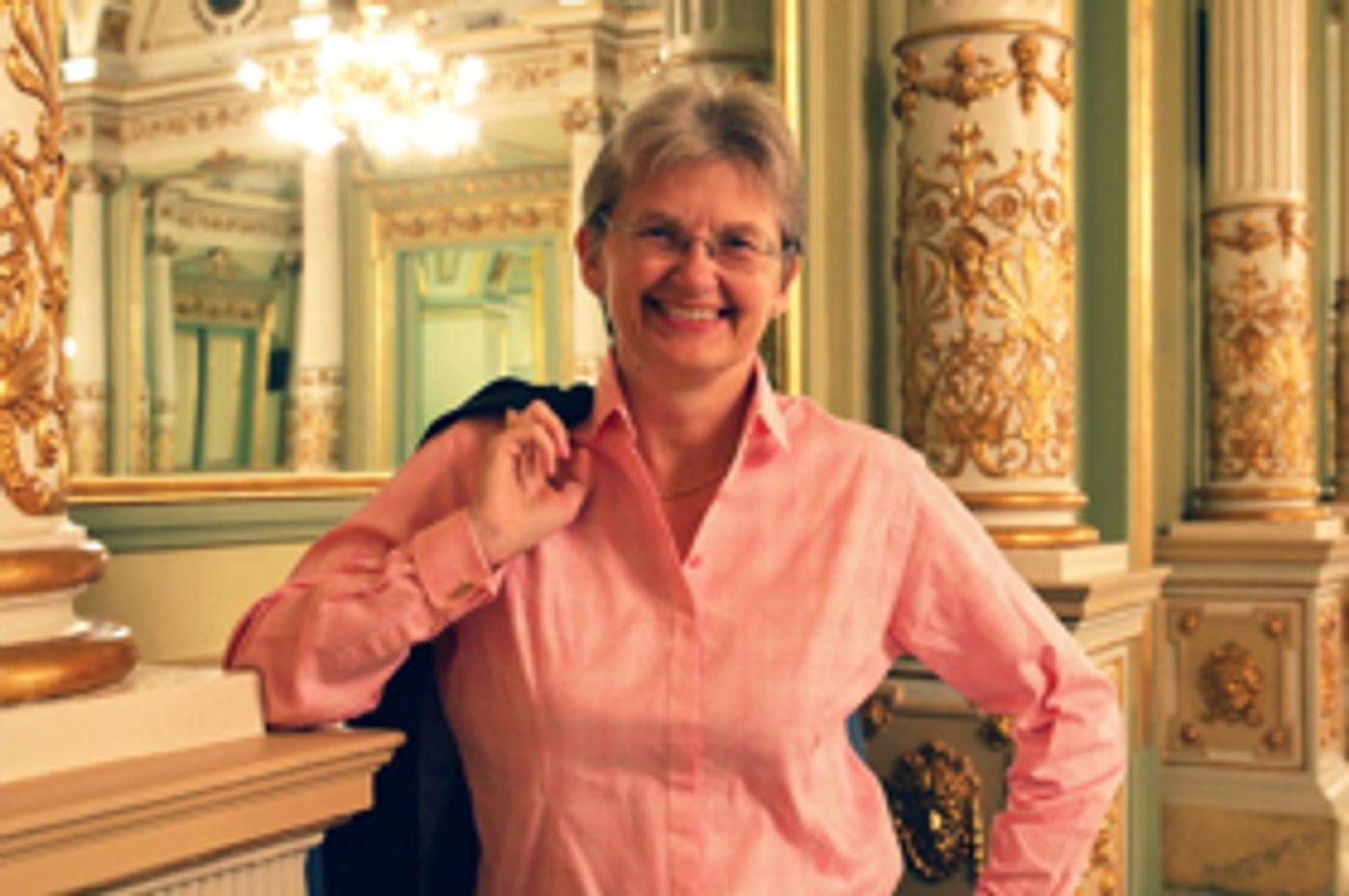BWW Interview Part 1: Seattle Opera Eagerly Awaits New General Director

Photo: Christian Machio
Christina Scheppelmann's name is eminently recognizable among opera aficionados worldwide. The Hamburg, Germany, native, currently leading Barcelona's Gran Teatre del Liceu, has graced opera houses across the continents with her artistic leadership: from San Francisco Opera, where she was recruited as an artistic administrator by celebrated opera icon Lotfi Mansouri; to Washington National Opera where, as Director of Artistic Operations, she received the imprimatur from highly respected Artistic Director Francesca Zambello; to the Persian Gulf, where she was the first Director General of the Royal Opera House Muscat in Oman.
As of August 2019, Seattle Opera will bid a warm and enthusiastic welcome to Scheppelmann as the first woman General Director in the company's history, one of only two women in such positions nationwide, replacing present General Director Aidan Lang, who will then helm Welsh National Opera. Scheppelmann shared some of her insights and her sharp intelligence with me during her recent visit to our city.
Erica Miner: Welcome to Seattle! I'm so excited to talk to you. We are positively thrilled to have our first woman general director at Seattle Opera. The excitement over your coming here is vibrating throughout the city.
Christina Scheppelmann: Do you know the pressure that puts on me? [Laughs] Kristina (Murti, Director of Marketing and Communications) told me about the reaction, which was positive, great for the Opera of course, but also I have to say the amount of emails and messages I got was unexpected. Between WhatsApp, SMS and emails, I got over 300 messages. It was a bit overwhelming. But it's great, I appreciate that but you go, "Ouf , that's a lot of pressure on you." [Laughs] But I'm glad people are happy.
EM: We're thrilled.
CS: Thank you.
EM: You grew up in Hamburg and started performing at an early age in the Hamburg State Opera's children's choir. Then you got your degree in banking. What made you shift gears from that banking into arts management?
CS: It's not shifting gears, because there is no way you come out of school and say I want to be an agent or arts administrator. There's no absolute direct connection there. Those years also, cultural management didn't exist yet as a course. I was already working at the agency in Milan when the conservatory in Hamburg did the first cultural management course. At the time I asked, and they said, "If you're already working in an agency and have a degree in banking, you don't need that." Aside from that I went to a music high school and played the violin, I was singing not only in the children's chorus but also later in the symphonic chorus in Milan. I sang for years in the chamber chorus. But I have no regrets about the banking. It's an interesting background. Ultimately, as an arts administrator, also as an agent, you have to juggle numbers and understand what numbers are so there's no damage in that.
EM: Absolutely.
CS: And I found it interesting. It's not something I wanted to do all my life, and after a year I thought, "I really don't want to this forever." But I finished the 2-year term I had to do to get the diploma, and it was interesting. I learned a lot that meanwhile I forgot, but there's a lot of reality check and information and concepts that I understood thanks to that.
EM: You've been called a "champion of young artists." Do you plan to implement a young artists program here, for composers and librettists, perhaps with singers?
CS: It's a little bit early to ask me that, because I have to understand the ins and outs of the functioning of the company, also the financial aspects. In an ideal world I would like something that helps the development-that helps young artists become young professionals. I have to still see how this is possible here. But I very much think that American Opera Initiative that I created in Washington I did something similar. I think it's something very important for the art form because we have to stimulate composers and librettists to write for the voice and for instruments, and write stories that somehow are worthwhile telling in music. If we don't stimulate that, we don't have future for the opera. There's nothing there. if there are not good composers that dedicate the time to tell stories for music and voice, then opera is dead. That's what opera is--telling stories with voice and music and instruments of all types. It has changed, how we tell those stories, but I think we need to keep stimulating that. I also believe we have to give young people opportunities. There have to be platforms to give the young composers, librettists, singers or directors opportunities. The new building here in Seattle is a fantastic opportunity.

EM: It certainly is. It's such an incredible "coming together"--new Seattle Opera Center /seattle/article/BWW-Review-Seattle-Opera-Celebrates-New-Civic-Home-20181221, new general director. What are the chances of those two things happening simultaneously? It's just amazing for us. That's one of the reasons there's so much excitement here.
CS: We have to define well how to use the building, what to do in the hall. But I think there are many opportunities without breaking the bank. That is always a consideration. We have to do something that opens the building to the community, a variety of events that hopefully interest a variety of groups and types of audiences, get other people through the door, depending on the programs, which is different than what you can do in a small auditorium than compared to a big auditorium. The intimacy and vicinity-you're sitting so close to the artists, that makes for a different connection-I have some ideas but I have to discuss this with the team and all my colleagues, also within the financial possibilities. Maybe we can find a way to support certain projects that are appealing or interesting.
EM: It is going to be a totally different experience. It's so new, nobody really knows what the capabilities will be.
CS: Exactly.
EM: But that makes it all the more exciting. I've talked to a lot of people in the community. Some don't even know the Center is here yet. That's how new it is. It's a question of getting the word out and, as you said, giving programs that will bring people in and excite their interest.
CS: Absolutely. Also, first people see how much it takes for an opera company as far as space is concerned to get it ultimately onstage. The offices are one thing; the two rehearsal halls are the other part. The wonderful costume shop is big, has a lot of natural light and is a fantastic space. And the auditorium, of course. There are fabulous opportunities there.
EM: Great facilities they never had before.
CS: This project--I remember Speight (Jenkins) telling me about it a long time ago as an idea, a thought--that it has become a reality and come to fruition is amazing.
EM: A great accomplishment for the company. I was interested to learn that you worked with the legendary Lotfi Mansouri at San Francisco Opera. What was that like?
CS: He was amazing. He had this huge personality and very present always. I think he took a huge chance on me. I was 28 when I became Artistic Administrator at San Francisco Opera, taking over from Sarah Billinghurst. I don't know what he was thinking.
EM: He saw a spark in you.
CS: I guess he must have seen something there. I spent 7 years there, so I guess I did something right over time. But it was fascinating to work with him. He had exuberant enthusiasm for opera. He truly loved it. The music, the performance aspect. He was in a way a showman himself and I really enjoyed working with him. Not an easy man, not an easy boss. Very demanding and complicated also. But he was a great person to work with.
EM: Larger than life.
CS: Yes, he was. He could work a room like no one else. He was fabulous. But boy, he was also demanding. And we had great times. For me the best memories when we were sitting in his office with Jake Heggie and Lotfi told Jake he was making this commission for Jake to write Dead Man Walking. To have been in the room when Lotfi told him that, to the opening night and through the whole process was an amazing experience.
EM: I've interviewed Jake a number of times (/dallas/article/BWW-Interview-Jake-Heggie-Part-2-Opera-Now-and-in-the-Future-20151023). He's an amazing person and composer.
CS: He is. Jake is great.
Next, Christina Scheppelmann, Part 2: On New Operas, Cultural Exchange...and Wagner

Photo credits: Christian Machio, Sean Airhart
Videos

